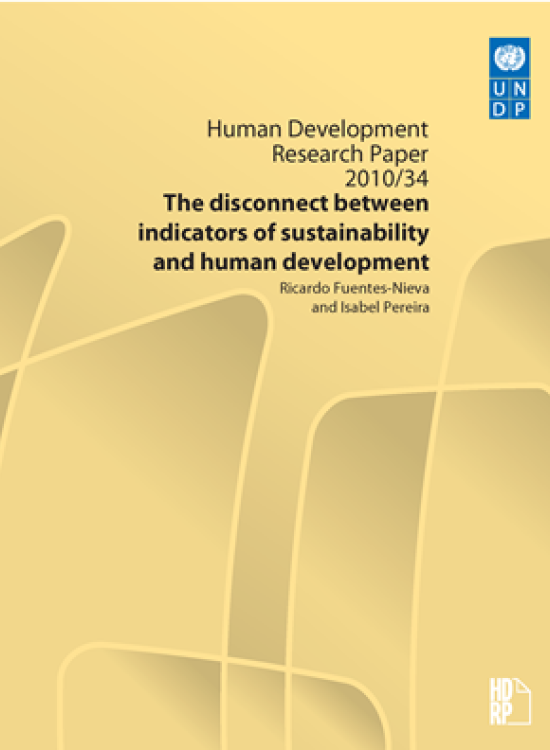The disconnect between indicators of sustainability and human development

UNDP (United Nations Development Programme). 2010. The disconnect between indicators of sustainability and human development. New York.
The disconnect between indicators of sustainability and human development
This paper presents an initial review of the theoretical and measurement discussions of sustainability and its relation to human development. As we show in this paper, there is an overall consensus about the importance of sustaining development and well-being over time, but in reality different development paradigms lead to different definitions and measures of sustainability. We review some of those measures, among which the Adjusted Net Savings (a green national accounting measure calculated by the World Bank and rooted in a weak concept of sustainability), the Ecological Footprint (calculated by the Global Footprint Network and rooted in a strong concept of sustainability, where environment is considered a critical resource), and the carbon dioxide emissions (a simple environmental indicator, used in international debate of climate change). Our analysis shows conflicting conclusions when studying the correlations between these indicators of sustainability and existing human development indicators, namely HDI, which emphasizes the need for further analysis to understand what “sustainable human development” means. Nevertheless, as we show here, over time there has been a close link between higher economic performance and energy consumption, which has been mostly based in the use of fossil fuels.

